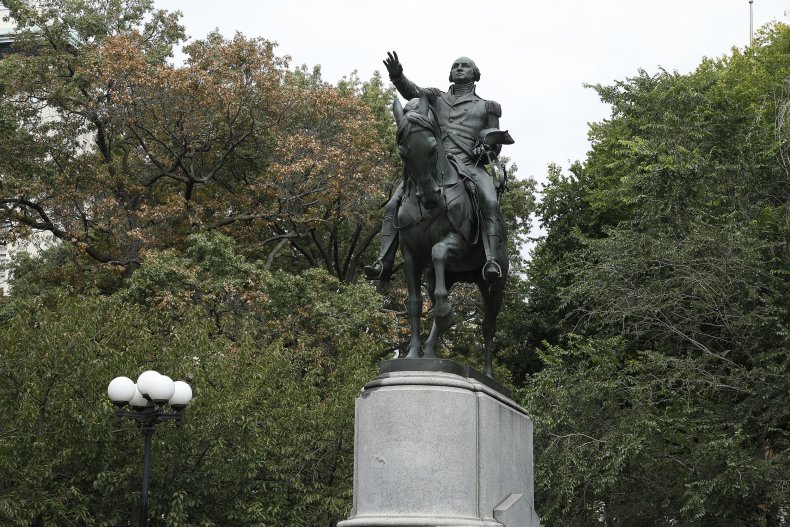It was only a matter of time before cancel culture scored a hit in its fight to eliminate the Founders from our collective memory. On Tuesday, the San Francisco board of education, by a vote of six to one, opted to rename more than 40 schools named for historic figures whose lives can no longer stand up to woke scrutiny.
The action results from a resolution adopted in May 2018, which laid the groundwork to scrub from schools the name of anyone who “engaged in the subjugation and enslavement of human beings; or who oppressed women, inhibiting societal progress; or whose actions led to genocide; or who otherwise significantly diminished the opportunities of those amongst us to the right to life, liberty, and the pursuit of happiness.”
Among the names being struck, George Washington—first president of the United States, leader of the revolution that secured the nation’s independence from Great Britain and the man whose leadership established a model followed by every one of his successors over the more than 200 years since he was first inaugurated.
The stated reason for the move is that Washington, as everyone readily admits, was a slave owner. By contemporary standards, that’s apparently enough to cancel out everything else he did. Slavery is an odious, inexcusable practice—and always has been. One cannot help but feel, however, that the energies being spent attacking the father of our country and other Founders over their participation in it would be better spent marshaling the forces necessary to eradicate slavery where it still exists.
All this was predictable. Washington was once a venerated American institution, standing apart from every other president and every other leader. He was the reason the United States came into existence and the reason it survived its infancy. No leader, before or after, can match his record of accomplishment, which is why we, his grateful descendants, used to observe his birthday as a national holiday.
That all began to change during the last great period of social unrest, back in the 1960s, when for the sake of efficiency the celebration of Washington’s birthday was moved to the closest Monday as part of an effort to add a few more three-day weekends to the calendar.

Once the first president’s birthday was moved, the effort to obscure it became that much easier. To avoid adding a federal holiday with all its attendant expenses to the calendar, Washington’s birthday was combined with Abraham Lincoln’s to create “Presidents’ Day,” accelerating the toppling of the man from Mt. Vernon from the cultural pedestal upon which he had been deservedly perched for nearly 200 years.
We are losing—and may have already lost—the commonality of purpose that made the United States what one former president at least called “the last, best hope” for mankind. The lack of any formal observance of Washington’s birthday, which is just now upon us once again, corresponds with a growing lack of understanding of the kind of man he was, his indispensability to the cause of American independence and just what it was he accomplished.
To the extent people know him now, it’s not because of the excellent scholarship of historians like Ron Chernow but because of the way he appears as a supporting character in the life of Alexander Hamilton in the eponymous musical devoted to the life of “the ten-dollar founding father.”
Rather than present a more balanced approach to his life and story, those who would condemn Washington seek now to eradicate him from the pantheon of American heroes worthy of our continued respect and admiration.
Washington is, as I’ve written before, the model citizen-statesman. His counsel regarding America’s role in the world is still valuable. His wisdom is eternal. He is a great man of history who, being in the right place at the right time, changed the course of human events in a way that set all Americans thereafter on the path of what another founding father famously called “the pursuit of happiness.”
What Washington told us about the need to limit the powers of the central government so that human freedom might flourish is as relevant today as it was then. His wise leadership produced what has become the greatest, freest, most prosperous, most generous society ever to exist. No American should be allowed to forget that, no matter how large a blot his ownership of slaves made on his copy paper.
Washington was a towering figure, standing head and shoulders above almost all his contemporaries. We need to return him to his place of honor on the calendar and in our hearts and to understand why his name was considered worthy of being put on schools in the first place. Those who are trying to rewrite history so they may change it should be ashamed. We let them succeed at our own peril. We cannot forge ahead together towards a better day if we do not understand where we began, warts and all. It is time for Congress to strike a blow against historical revisionism by restoring Washington’s Birthday on the calendar and moving it back to February 22, where it belongs.